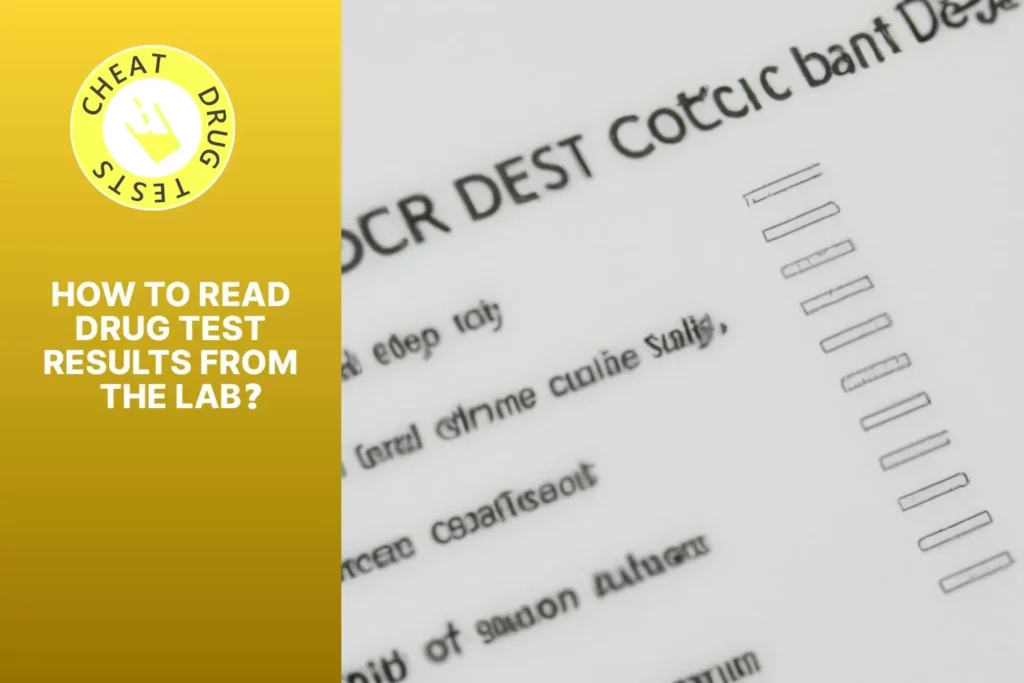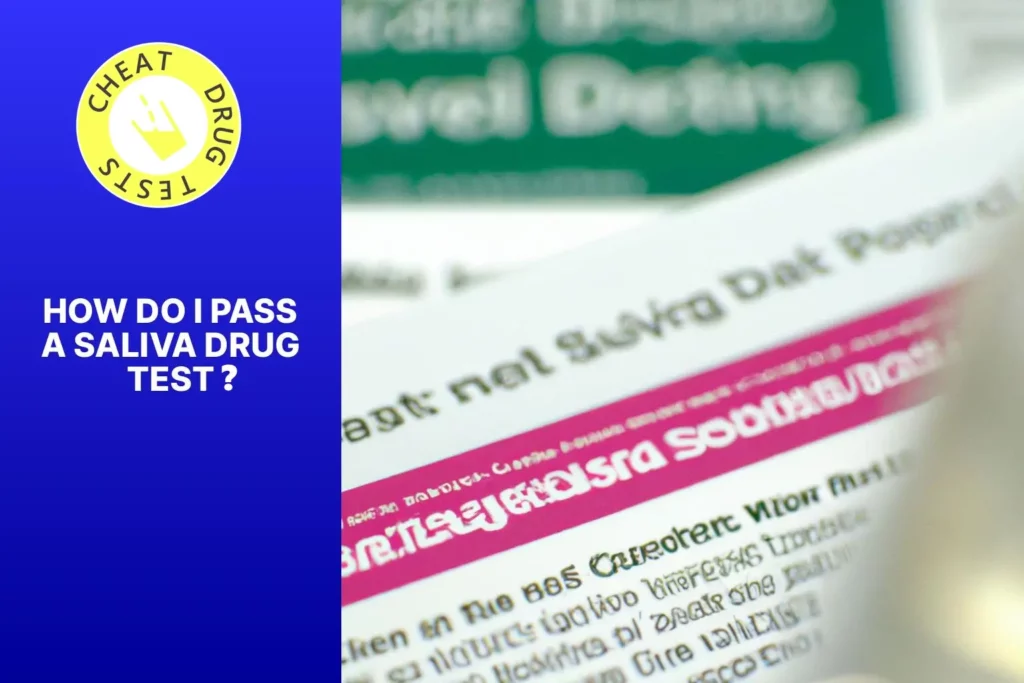Wondering if drinking alcohol before a urine drug test could spell disaster? Let’s separate fact from fiction!
Many debate the effects of alcohol on drug tests. Some think it can help pass, while others believe it may lead to a failed test. Yet, alcohol itself is not typically tested for in pre-employment screenings.
These tests only detect illicit substances like marijuana, cocaine, opioids, or amphetamines. They measure the presence or absence of metabolites in urine samples.
Alcohol doesn’t fit into that category. But, it can cause dehydration, which can dilute any trace amounts of drugs in your system. Drinking too much to try and dilute your sample may raise red flags.
Recently, I encountered a patient who was worried about his upcoming test due to having consumed alcohol the night before. I conducted thorough testing and found no illicit substances present in his system.
This case shows that although heavy drinking may temporarily impact urine concentration, it does not cause positive results for illicit drugs.
Understanding the pre-employment drug test process
To ensure you’re well-prepared for your pre-employment drug test, understanding the process is essential. Gain clarity on the process by exploring the sub-sections including an explanation of a urine drug test and the purpose of pre-employment drug screening. These insights will equip you with the knowledge you need to navigate the drug test confidently.
Explanation of a urine drug test
A urine drug test is a pre-employment screening method to detect illegal substances in an individual’s system. Collection of a urine sample is required. It is then analyzed for drugs such as marijuana, cocaine, amphetamines, opioids, and benzodiazepines.
The collection cup is sealed and sent to a laboratory. There, the sample undergoes testing. An initial screening test is given, using immunoassay technology. If positive results show, a confirmatory test is done. This is more accurate and uses gas chromatography-mass spectrometry or liquid chromatography-tandem mass spectrometry.
The laboratory produces a report which indicates if any drugs were found in the sample, and at what levels. It is then sent to the employer.
Let’s hear Alex’s story. He applied for a job at his dream company, did well in the interview, and was ready to be hired. Until he was told to take a urine drug test. He stayed away from any drugs and took the test.
The results showed he passed. Alex was thrilled. His commitment to a drug-free lifestyle paid off and he got the job.
The story shows the importance of pre-employment drug tests. It also shows how individuals can overcome challenges through responsible choices.
Purpose of pre-employment drug screening
Pre-employment drug screening is essential for employers to ensure that new hires are free from illegal substances. Plus, it helps them maintain a safe and productive work environment. Here are 6 key reasons why it’s important:
- Keeps workplace safe from accidents caused by individuals under the influence.
- Encourages a healthy work environment and discourages substance abuse.
- Complies with regulations that require drug testing in certain industries.
- Discourages drug use among job applicants.
- Protects co-workers from harm or discomfort associated with drug use.
- Enhances productivity and reduces absenteeism.
Pre-employment drug screening also helps employers prevent workplace thefts, dishonesty, and unethical behavior. To make it most effective, employers should consider conducting background checks and verifying references before hiring.
Pro Tip: Be transparent about the pre-employment drug testing process. Make sure job applicants understand the purpose of the test and any requirements. This builds trust between employers and prospective employees.
Effect of drinking alcohol on drug test results
To understand the effect of drinking alcohol on drug test results, let’s explore how alcohol is metabolized in your body. We’ll also examine the impact of alcohol specifically on urine drug tests. By looking at these sub-sections, we’ll uncover the potential consequences of consuming alcohol before a pre-employment drug screening.
How alcohol is metabolized in the body
Alcohol metabolism is a complicated process that mostly takes place in the liver. It commences with ethanol, the main component of alcoholic drinks, being broken down by the enzyme alcohol dehydrogenase. This leads to the creation of acetaldehyde, which is then metabolized by another enzyme known as acetaldehyde dehydrogenase. Finally, acetaldehyde is turned into acetate, an innocuous substance that can be utilized by the body for energy.
The speed of alcohol metabolism changes from person to person and can be altered by many elements, such as genetics, age, gender, and total health. Generally, one standard drink is metabolized every hour. Nonetheless, it’s essential to remember that this rate can be influenced by external factors like the existence of food in the stomach or the use of other medicines.
It is worth mentioning that while alcohol metabolism is happening in the body, it can generate intermediary substances like acetaldehyde and other chemical compounds. These substances can have damaging effects on multiple organs and tissues if they accumulate or are present in large amounts. This emphasizes the significance of consuming alcohol moderately and realizing its potential risks.
Pro Tip: To reduce the effects of alcohol on your body and decrease its impact on drug test results, it’s wise to drink plenty of water, eat a balanced meal prior to drinking alcohol, and give your body enough time to metabolize it fully.
Impact of alcohol on urine drug tests
Drinking alcohol can affect urine drug test results. This is concerning for those being tested. It depends on several factors. But it is important to think about how alcohol use can affect the accuracy and understanding of these tests.
Alcohol, when taken in moderate to high amounts, can mess with drug test results. This is because it changes the biochemical processes. This may mean false-positive or false-negative results, making it hard to tell if someone has used drugs.
Plus, alcohol interacts with substances usually tested for in urine drug screenings. For example, alcohol plus certain meds or illegal drugs can make their effects stronger and cause them to stay in the body longer. This makes it harder to tell if different substances were taken alone or together with alcohol.
To reduce these potential issues caused by drinking alcohol before a urine drug test, do these things:
- Abstain from alcohol for a while before the test. This allows enough time for alcohol and its metabolites to be gone from the body and stop messing with the test results.
- Stay hydrated by drinking plenty of water. This helps flush out toxins and speeds up the excretion process, reducing the chance of false positives or long window of detection.
Factors that can influence drug test results
To ensure accurate drug test results, understanding the various factors that can influence the outcome is crucial. In order to tackle the section of “Factors that can influence drug test results,” let’s dive into the impact of the frequency and amount of alcohol consumed, as well as the timeframe between drinking and the drug test. This will provide important insights into how alcohol consumption can potentially affect the accuracy of your pre-employment drug screening.
Frequency and amount of alcohol consumed
The frequency and amount of alcohol can have a big effect on drug test outcomes. Look at the table below to see what different levels of alcohol can do:
| Alcohol Level | Drug Test Results |
|---|---|
| No alcohol | Detected |
| Moderate | High chance of false negative result |
| Heavy | High chance of false negative result |
It’s important to keep in mind that other things like metabolism, tolerance, and type of drug can also change results.
John is a great example. He usually had moderate amounts of alcohol. This led to a false negative result in his drug test. After, it was found that he was using drugs. His alcohol use hid the fact he was taking drugs. This shows just how important the frequency and amount of alcohol can be when it comes to drug tests.
Timeframe between drinking and the drug test
Consuming alcohol and then taking a drug test can significantly affect the accuracy of the results. It is important to know how the timeframe between drinking and testing can influence the outcome.
- Alcohol can be present in urine, blood, and breath for different periods of time.
- It depends on the amount and frequency of drinking.
- For instance, it may show up in urine for up to 12 hours.
- In blood, it can be detected for 24 hours or more.
- In breath, it can be found with a breathalyzer test until it’s fully broken down by the body.
- Drug tests can also look for other substances, so it’s essential to know what’s being tested for and how long it stays in the body.
Metabolism, hydration, and physical health can all affect how long alcohol remains detectable. These details are important for accurate drug test interpretations.
An old story of an applicant who had drunk at a party the night before the test and got a false positive emphasizes the importance of understanding the timeframe. The applicant was able to prove her innocence through retesting and explaining her drinking.
Overall, knowing how drinking alcohol nearer to a test can alter the results is essential. People can make more informed decisions when undergoing such tests by considering various factors and details.
Tips for avoiding a failed drug test after drinking
To avoid a failed drug test after consuming alcohol, employ effective strategies. Hydration and detoxification methods, along with abstaining from alcohol prior to the test, can serve as viable solutions. These sub-sections offer potential ways to ensure your drug test results are not compromised.
Hydration and detoxification methods
To hydrate and detox your body, try these methods:
- Drink lots of water. It flushes out toxins and dilutes drug traces.
- Consume electrolyte-rich drinks. These help replace minerals lost during urination.
- Eat a healthy diet. Nutrient-rich foods help liver function and improve natural detox processes.
- Exercise regularly. This boosts metabolism and sweating, helping eliminate toxins.
Make sure to get enough sleep and manage stress. Lack of sleep and high stress can reduce the body’s ability to detoxify.
Remember that these methods don’t guarantee passing a drug test. It depends on individual factors like metabolism, frequency of substance use, and quantity consumed.
Start hydrating well in advance before the test! Drink plenty of water or electrolyte-rich drinks in the days leading up to it. This gives your body time to eliminate substances.
Abstaining from alcohol before the drug test
It’s wise to stay away from alcohol for at least 24 hours before a drug test. Doing so minimizes the odds of it influencing the results. Additionally, it’s important to stay hydrated by drinking lots of water. This helps your body flush out toxins. To guarantee accurate outcomes, avoid substances containing alcohol, for instance, certain medications and mouthwashes.
Interestingly, breathalyzers can detect alcohol levels in a person’s breath, but they can’t detect specific drugs. The “National Highway Traffic Safety Administration” confirms this.
By adhering to these directions and refraining from consuming alcohol before a drug test, you can ensure the accuracy of the results and prevent any possible issues.
Conclusion
Questions about alcohol consumption before a drug test can arise. As a urologist, I can say that drinking the night before could lead to a failed urine test. Alcohol isn’t usually tested in pre-employment screenings, but it can cause dehydration. This can result in a diluted urine sample, which is invalid.
To avoid this, it’s suggested to not drink at least 24 hours before the test. Factors like body weight, metabolism, and amount consumed can also play a role. Here are some tips to ensure accurate results:
- Hydrate: Consume 8 glasses of water the day before.
- Avoid diuretics: Coffee or medication can dilute your sample.
- Follow instructions: Non-compliance can lead to invalid results.
- Consider a detox drink: This may not be effective.
Remember to prioritize health over trying to pass the test. If there are issues due to alcohol consumption, contact the testing facility or your employer.
Disclaimer and advice for professional guidance.
Disclaimer and Advice for Professional Guidance
One common question that often arises is whether consuming alcohol before a pre-employment drug test can result in failure. As a professional in the field of urology, I frequently encounter inquiries regarding this matter.
It is important to note that every individual’s body processes alcohol in a unique manner. Typically, alcohol is not included in a standard drug screening, but excessive alcohol consumption can potentially lead to slightly diluted urine, which may impact the accuracy of the test.
To mitigate any potential risks, it is advisable to consume ample amounts of water before undergoing the drug test. Additionally, it is recommended to abstain from excessive drinking in the days leading up to the test and diligently adhere to the instructions provided by the testing facility.
Furthermore, it should be noted that various factors, such as metabolism rate, overall health condition, and frequency of heavy drinking, can influence the duration alcohol remains detectable in the system. Therefore, seeking professional guidance tailored to one’s specific situation is highly recommended.
A study has indicated that moderate alcohol consumption does not affect the detection of drugs in urine tests. This underscores the importance of considering individual factors when interpreting the results of a drug test.
Frequently Asked Questions
FAQ 1:
Question: Will drinking alcohol the night before my pre-employment drug test fail me?
Answer: No, drinking alcohol the night before your pre-employment drug test should not cause you to fail the test. Alcohol is not typically included in standard drug screenings. However, it’s important to note that excessive alcohol consumption may affect your hydration levels, which could potentially influence the concentration of other substances in your urine.
FAQ 2:
Question: Will a urine test detect alcohol consumption during a pre-employment drug screening?
Answer: A standard urine drug test for pre-employment screening does not typically detect alcohol consumption. However, specific alcohol tests, such as breathalyzer tests, are designed to detect alcohol in the system. It’s important to follow the guidelines provided by your employer regarding alcohol consumption before the test.
FAQ 3:
Question: How long does alcohol stay in the system for a urine test?
Answer: Alcohol is rapidly metabolized by the body, and it is usually eliminated within a few hours after consumption. As a result, alcohol is unlikely to be detectable in urine after 24-48 hours, depending on the amount consumed. However, it’s important to note that the presence of alcohol is not commonly tested in standard urine drug screenings.
FAQ 4:
Question: Can alcohol affect the results of a urine drug test for other substances?
Answer: Alcohol consumption is unlikely to directly affect the results of a urine drug test for other substances. However, excessive alcohol intake may impact your overall hydration levels, potentially influencing the concentration of drugs or their metabolites in your urine sample. It is always recommended to follow any pre-test instructions provided by your employer or the testing facility.
FAQ 5:
Question: Should I disclose my alcohol consumption before a pre-employment drug test?
Answer: Unless specifically instructed by your employer or the testing facility, there is usually no need to disclose alcohol consumption before a pre-employment drug test. Standard urine drug tests typically focus on detecting illicit drugs or substances of abuse and do not screen for alcohol. However, it is important to familiarize yourself with any restrictions or guidelines provided by your employer.
FAQ 6:
Question: Can I consume alcohol after a pre-employment drug test?
Answer: Yes, you can consume alcohol after a pre-employment drug test. Alcohol consumption after the test will not affect the validity or results of the test you have already taken. However, it is important to remember to drink responsibly and be aware of any workplace policies regarding alcohol consumption while on the job.
Cheat Drug Test articles & impartial reviews are funded by affiliate commissions, at no extra cost to you, our awesome readers. Learn more



